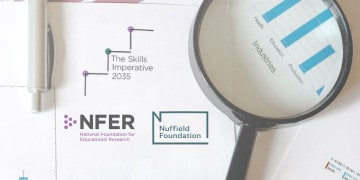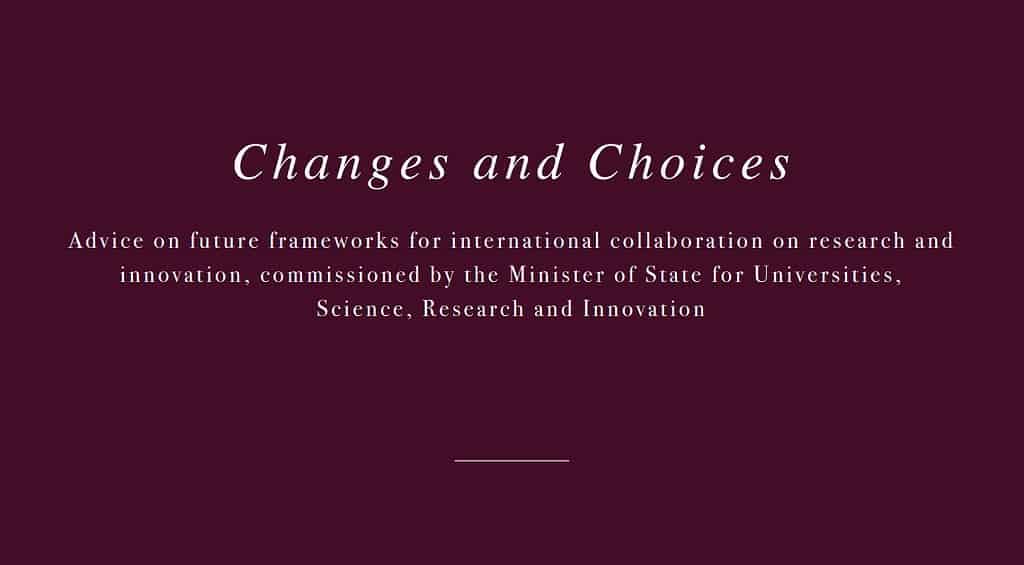Ofsted’s Chief Inspector, Sir Michael Wilshaw, has recently highlighted concerns around the teaching of science at primary school and has tasked inspectors with keeping a closer eye on science and other subjects, alongside English and maths. Hilary Leevers, Head of Education and Learning at the Wellcome Trust, explains why science deserves the same focus as English and maths.
Ofsted shines a spotlight on primary science
24 May 2016
Science at primary school is a core subject, yet it is often not treated as such by school teachers and leaders and by those that hold them to account. It takes up far less teaching time than English and maths, and in the worst examples is taught hardly at all.
Sir Michael Wilshaw’s recent article shines a spotlight on science’s current status in schools. As part of 234 routine primary school inspections over the last two terms, Ofsted inspectors found the focus on English and maths had pushed science “to the margins of the curriculum in many primary schools”. The variable quality of teaching has led Her Majesty’s Chief Inspector to remind inspectors of the importance of looking at science in all future inspections.
Around a third of the primary schools Ofsted visited indicated that they spend one to two hours a week on science teaching. In one case, pupils said that they couldn’t remember the last time they had a science lesson. Our own survey, of a representative sample of 805 primary school teachers and leaders, found almost half taught science on average for one or two hours per week, and a fifth taught between 30 minutes and 1 hour.
This is a real loss to pupils – and our society – as primary science builds up children’s curiosity from an early age, encouraging them to explore and understand the world around them. Children’s experience of science in the primary years forms the bedrock for their future science education and is also the time when children start to form perceptions of whether or not science is ’for them’. Its importance is evident in its status as a core subject alongside English and maths, as emphasised in Sir Michael’s piece.
Over the last two years, Wellcome has been monitoring the extent to which routine primary school inspection reports mention science and we were gravely disappointed to discover that in 2014 just a quarter of reports mentioned science at all. Two thirds of secondary school reports did mention science, better than primary, but still not good enough. In comparison, maths was covered in every primary and secondary school report.
However, as a result of Ofsted’s recent attention on science, 60% of the 100 primary school reports we sampled this year mentioned science. We very much look forward to seeing this rise to 100% over the coming months as inspectors take the Chief Inspector’s new direction into account.
The Chief Inspector’s article also describes “a link between teachers’ subject knowledge and how well pupils were developing their scientific skills”. All primary teachers are teachers of science and should be participating in science specific continuing professional development; fortunately this is readily available through organisations like STEM Learning, often accompanied by bursary support. Strong leadership is also essential and every primary school should have a science lead – these could be listed on their website to increase visibility of the role. Wellcome’s survey has shown that 6% of primary teachers work in schools with no named science lead that they were aware of.
We are delighted that Sir Michael Wilshaw has brought attention to the need to improve the monitoring and teaching of science in primary schools. Ofsted has a huge influence on school behaviour and its new commitment to look at primary science is to be welcomed. Rest assured that we will continue to monitor the inspection reports over the coming months.
Related articles

The Physiological Society’s policy team on the health challenges facing older workers and the urgent need to develop a strategy to ensure older people are happy and healthy at work.

Jo Reynolds, Director of Science and Communities at the Royal Society of Chemistry, on the RSC’s new summary report looking to unlock the potential of deep tech SMEs.

Lisa Morrison Coulthard, Research Director at the National Foundation for Education Research, on the Nuffield Foundation funded five year research programme providing insights into the essential employment skills needed for the future workforce

Sir Adrian Smith, Institute Director and Chief Executive of The Alan Turing Institute, and Graeme Reid, Professor of Science and Research Policy at UCL, set out the findings from their new independent report on international partnership opportunities for UK research and innovation